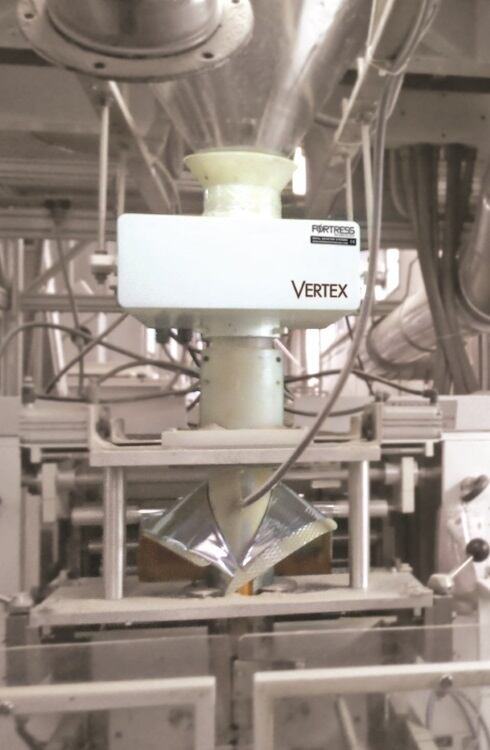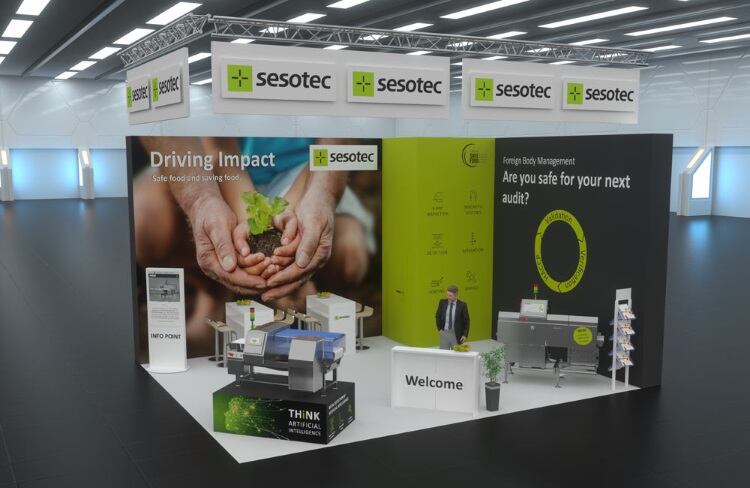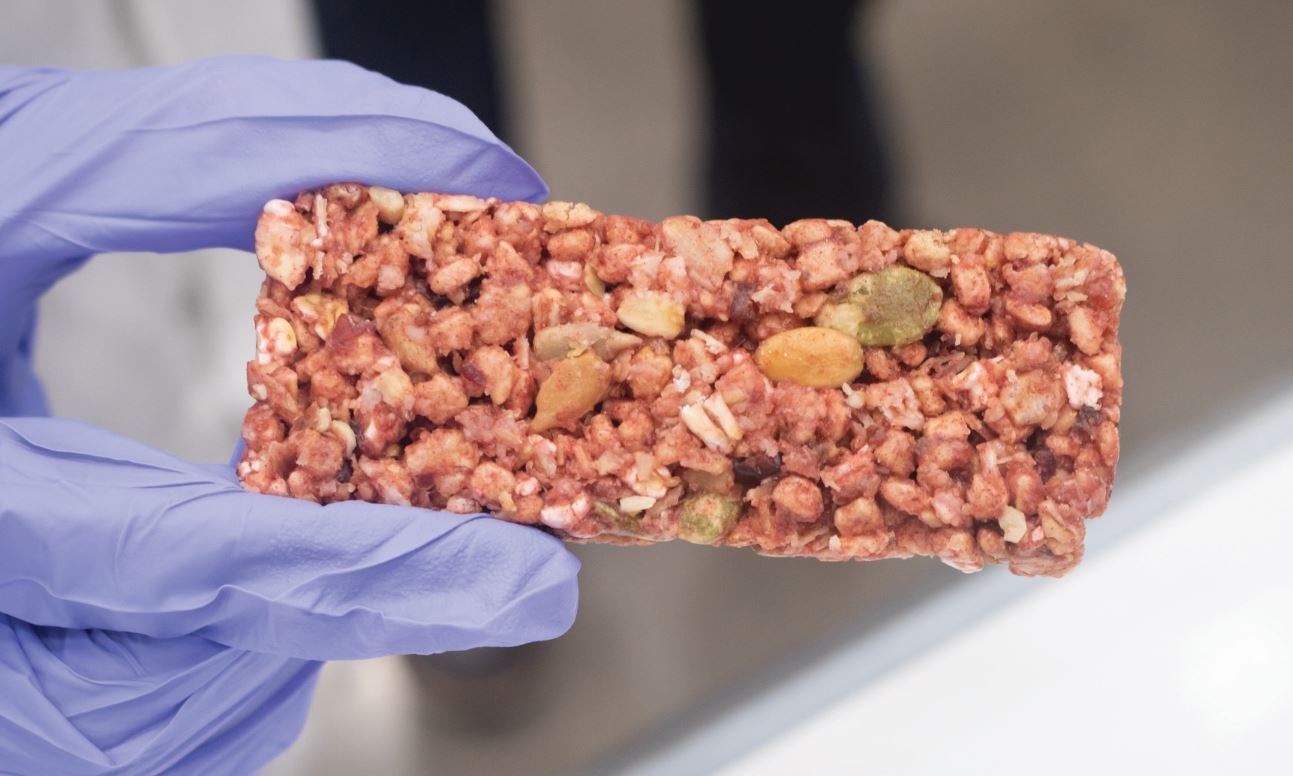According to Fortress Technology, snack producers are fast realising the major labour costs savings of the slim-line unit, which supports fast product changeovers and reduces the time spent to perform frequent routine verification checks.
The inline system – which can fit into restricted production spaces other detectors cannot – is designed to integrate with Vertical Form Fill Seal (VFFS) pouch-packing solutions. A case through dimension that can be as little as 125mm (191 mm including flanges) and a circular aperture means Vertex easily slots into existing VFFS packaging and weighing turnkey lines.
The designer claims it is also the only known food metal detector of its kind to incorporate an advanced automatic testing programme, while its compact throat increases production capacity and addresses staff shortages.
The need to constantly innovate and diversify
Fortress regional sales manager Eric Garr said snack producers are adding more packing and inspection lines to cope with the ‘snackification’ trend, which has seen snacks become a mainstream mode of eating. He noted it is not unusual to see up to 100+ turnkey weighing, metal detectors and VFFS packing lines side by side in large snack factories.
Brands today have to continually innovate and diversify portfolios to cope with consumer demand. The average American is expected to spend $209.35 on snacks in 2020, with the overall market forecast to grow at a 2.4% CAGR until 2023.
Frito-Lay recently published its top 2020 forecasts indicating that spice, citrus, global influence, unexpected combinations and health benefits with all drive new product developments.
“The addition of new ingredients, flavours, own-label, sub-brands, pack sizes and nutritional concepts means that a snack company’s average portfolio can easily comprise 100+ SKUs,” said Garr.
Advanced off-the-shelf unit

Essentially, Vertex with the addition of Halo is an off-the-shelf metal detector that enables producers to rapidly introduce new lines and speed up their time to market. Similarly, the aperture sizes are standard: “Small enough in diameter to ensure metal detection sensitivity is not compromised, yet wide enough to ensure there’s no product choke-off,” added Garr.
However, the unit meets – and in many instances exceeds – the sensitivities of comparable snack metal detection systems, claims Fortress.
Each unit is fitted with Digital Signal Processing technology to inspect freefalling product at high speeds, detecting and rejecting the smallest metal contaminants, including pieces of wire, shavings and swarf.
Rather than adding a side reject system – too bulky for most snack packing lines – the reject output is connected to the bagger. A signal is sent to the PLC, or to the downstream bagging equipment, which then either stops the line or inhibits the cutting of bags. The contaminant is trapped and sealed in an extra-long bag that is easily spotted and removed by personal, or more typically by a downstream checkweigher that will reject it as overweight.
The Vertex can also inspect for metal contaminants in metalised polybags.
“The achievable sensitivity will mostly depend on the characteristics of the bag, which product tests performed free of charge by Fortress can determine,” said Garr.
Automatic testing
Due to the scale of their automated weighing, inspection and packing operations, automatic testing is widely adopted by the snack community. As well as reducing the cost associated with performing these checks manually, automatic testing improves the repeatability of routinely monitoring a metal detector’s performance.
Halo is Fortress’ version of automatic testing. It works by repeatedly and accurately simulating testing with all metal types (ferrous, non-ferrous and stainless-steel) by mimicking the signal disturbance of particles of a calibrated size.
Each Halo – a separate kit of electronics from the search head – is calibrated to simulate the presence of a metal contaminant falling at the speed of the application being inspected. Multiple machines can also be networked to generate a site performance due diligence report.
“We are not aware of any other technology in the food inspection market that can test all sizes and metal types so reliably, precisely and at such a fast speed,” added Garr.





